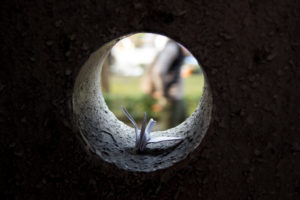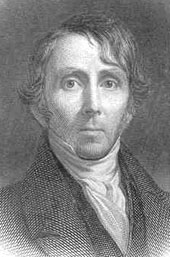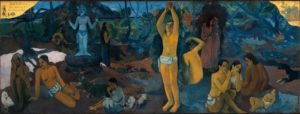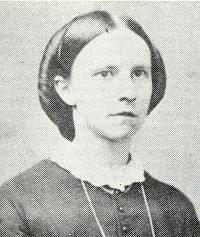Blessing for Something New
September 1, 2016New beginnings–whether starting a new grade or moving to a different city or taking on a new sport or hobby–can be kind of scary. Here is a blessing that you can say for yourself when you’re feeling worried about taking on something new:
Walking through this open door
I carry with me blessings four:
The love that surrounds me,
The knowledge that grounds me,
The courage that lifts me,
The chance this door gifts me.
Bonus: A pep talk for teachers and students from Kid President
When did Unitarians begin?
September 1, 2016There are different ways that you could define the beginning of Unitarianism. But many people would say that Unitarians were first defined as a distinct religious movement by William Ellery Channing, in a sermon given in 1819.
In this sermon, called “Unitarian Christianity” (or sometimes “The Baltimore Sermon,” because he gave it at an ordination in Baltimore), Channing laid out what he though were the particular beliefs of the group of liberal Christians who were sometimes referred to as “Unitarians.”
Unitarians, he said, did not believe in the trinity of God the Father, God the Son (Christ) and the Holy Ghost—which is what gave the group the name Unitarian, for the unity of God. But more than that, he described Unitarians as believing in human goodness, and believing in the importance of using reason in looking at religion.
Channing said that thinking is one of the most important gifts that we are given as human beings, and that surely God expected us to to use our gifts of reason in understanding religion as well as the rest of life.
In 1825, just six years later, the American Unitarian Association became the official organization of the Unitarians.
The Blessed Gift of Joy
July 6, 2016Siri Allison is a storyteller with Story Circle at Proctors, the resident storytelling company at this performing arts center in Schenectady, NY. This story is from the Kanglanek people, who live near the source of the Colville River, a major river on the Arctic Coast of Alaska. (Story begins at 1:20 after some introduction.)
Dance Break for Joy
July 6, 2016We can express joy in so many ways. One way is with our bodies. You might want to wiggle your fingers and toes. You might want to stretch like a cat or hop like a bunny, you might want to wrap a warm blanket around yourself. You might want to hug a friend, or wiggle in your chair.
Just like there are so many ways to express joy, there are so many ways to use your body to dance your joy! You can dance whenever you feel joyful. You can dance any way you like. And when you don’t feel very joyful, something magical might happen if you can dance anyway. It might even change the way you are feeling!
Send in the Clowns
July 6, 2016Most of us only see clowns in parades and circuses. But for refugees and people who cannot go back to their homes, there are not many parades or circuses, and the children who live in the refugee communities don’t get to see many clowns-or have a lot of fun in general. It’s a hard life for anyone, especially for children, but these clowns are clowning for a cause!
Clowns without Borders is a troupe of performers who visit refugee camps and displaced communities and perform for them. They juggle, they do magic tricks, they make everyone laugh and smile. For more than 20 years, these joyful folks have brought joy to the loves of people who have experienced great struggles and loss. They call it Resilience Through Laughter.
Why is this posted in the UU & You section of Family Quest? Because there are UUs participating in Clown Without Borders today! Here’s an interview with lifelong Unitarian Universalist Sarah Foster:
Sarah Liane Foster, a lifelong Unitarian Universalist, traveled as a professional clown with Clowns Without Borders to Haiti, Turkey, Colombia, Swaziland, and South Africa where children have experienced conflict and injustice. “Laughter is a critical way to heal trauma,” Sarah said. You can read more about Sarah’s story in the Spring 2016 Family pages of UU World as well!
Where Are We Going?
June 1, 2016Join with friends or family to sing this round to celebrate life’s mystery together.
Here are the three parts:
First part: Where do we come from? What are we? Where are we going?
Second part: Where do we come from?
Third part: Mystery, mystery, life is a riddle and a mystery!
Listen to the video below to learn the melodies with the Orange County Unitarian Universalist Choir.
To hear hundreds of UUs singing this song at General Assembly 2008, watch the first few minutes of this video from morning worship with Rev. Fred Muir.
The lyrics to this song come from the title of one of artist Paul Gaugin’s paintings (you can see the words from the first part of the round, written in French, in the upper left-hand corner):
Song credit: “Where Do We Come From?” by Brian Tate, as included in the Unitarian Universalist Association’s Singing the Journey: A Supplement to Singing the Living Tradition. Copyright 1999 by Brian Tate.
A Tale of Two Ministers
June 1, 2016For our theme of Mystery we actually have two people to honor. The first is Rev. Dr. Judith Campbell, a UU minister who writes mystery novels about a UU minister named Olympia Brown. The second, of course, is the original Rev. Olympia Brown, who the character is named for.
The Olympia Brown in the murder mysteries is, like her author, a modern woman. But she shares a courageous spirit and a sense of justice with the historical Olympia Brown.
That Olympia Brown was born in 1835, and she was the first woman in the U.S. to graduate from a regular school for the ministry, and she was ordained into the Universalist ministry as the first woman to be fully ordained and recognized by her denomination.
Olympia Brown served as a minister until the age of 53, when she decided to retire from church work in order to work full time on promoting women’s rights.
Judith Campbell, our mystery writer, has been both a professor and a minister before turning to writing murder mysteries as well as other kinds of literature.
Renew Your Membership
We invite you to join your fellow CLFers to renew your CLF membership and stewardship of the CLF for another year.
Support the CLF
Can you give $5 or more to sustain the ministries of the Church of the Larger Fellowship?
If preferred, you can text amount to give to 84-321
Newsletter Signup
About
Quest for Meaning is a program of the Church of the Larger Fellowship (CLF).
As a Unitarian Universalist congregation with no geographical boundary, the CLF creates global spiritual community, rooted in profound love, which cultivates wonder, imagination, and the courage to act.
Contact
Church of the Larger Fellowship Unitarian Universalist (CLFUU)
24 Farnsworth Street
Boston MA 02210






